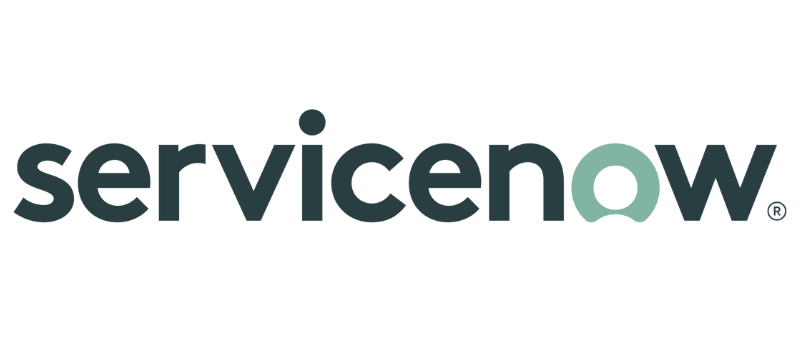Why HR projects succeed: Employee experience
Get the data-underpinned latest on what HR project success looks like and how to ensure ROI and good people outcomes.
Understand why HR technology transformation is never just about the tech – it's about your people, their experience of work, HR skills, data, planning, and resilience.
Hear about different approaches to the digital-enabled employee experience.




With research showing that most HR technology projects aren’t considered to be successful, UNLEASH shares the latest research on how employee experience and technology transformation intersect, shining a light on how HR should understand the relationship between the two.
In conjunction with Synco Jonkeren at ServiceNow, Anita Lettink, Strategic Advisor at HR Tech Radar, Wagner Denuzzo, Head of Capabilities for Future of Work at Prudential Financial, Kate Graham, Head of Content Labs and Insights at UNLEASH chairs a discussion on how to approach HR technology projects, what they should be aiming to do and how demographics, market trends, consumer technology all affect this arena. Speakers also distill how to succeed in this arena.
Watch on-demand to:
- See which areas of HR technology organizations are looking to focus on over the coming year.
- Explore what ‘good’ looks like in organizations like Amazon, NASA, Novartis, and DHL.
- Look at why the ‘digital experience platform’ might be a good way of conceiving of technology-enabled good experience of work (and how to get there!)
What makes an HR project succeed?
At the start of the webinar session, we polled attendees on where they thought their HR technology transformation was. Very few respondents stated that they had actually brought a project to its culmination successfully, with most somewhat along their journey. With very few at the “success” stage of their HR technology transformation, it was crucial here to focus on what success might look like.
Here in alignment with the UNLEASH and ServiceNow report on Why HR Projects Succeed, Graham laid out that HR practitioners have got to consider how they stick to budgeting, whether they hit project goals if the result of the project improves the employee experience, employee self-service, and retention rates, and if it’s delivered in a way that is timely but also futureproofs the organization. This was reiterated at the end of the webinar by looking at seven ways HR can obtain success during transformation projects.
Although it sounds like a lot to consider – especially as most organizations are planning to increase investment in HR technology and the research shows that 82% consider HR technology ‘important’ or ‘very important’ in its support of everyday experience of work – HR shouldn’t feel overwhelmed. The latest data from the Why HR Projects Succeed research shows that circa a third rate their HR projects as successful, which is twice as high as two years ago. A clear sign of progress.
Employees aren’t satisfied with their experience of work
Almost half of employees, according to the latest UNLEASH and ServiceNow research, aren’t happy with their experience of work. Yet the same research shows that this is the area that HR organizations are most likely focused on when it comes to investing in new technology. Here, Synco Jonkeren at ServiceNow, added that for success in this area, HR can’t just think of technology as a panacea but as something that aids and improves the human experience of work. Lettink agreed, noting that systems are never solutions in themselves and should aim to create environments that are attractive to people, citing the increased will of individuals to leave companies to go solo if they aren’t happy.
Therefore the logical next question is: what should HR technology transformation be aiming to do? For Denuzzo, it’s about creating a system whereby value is created for the customer but also the employee, considering how it might help deliver on things that employees need – new skills and new possibilities – and this might enable the organization to succeed in the longer term. Lettink added that actually, HR shouldn’t be solipsistic when it comes to considering technology projects: thinking, instead, holistically about its impact on work at their organization and how it makes that work enjoyable and desirable. This, Denuzzo argued, should, in the new future-leaning world of work, be bulled together in an employee experience platform. With many employees now experiencing work through a digital-first lens, it is the building of these platforms that will be crucial to any good experience of work.
However, Denuzzo warned that HR shouldn’t overthink this, noting that these platforms, and the future experience of work, should underpin the basics done brilliantly: good conversations, great networks, and a solid working experience.
Steps to success
For HR, business leaders, and employees, there are often roadblocks to a successful transformation of technology. Even in work that isn’t undergoing a transformation, there are impediments in the day-to-day. Reporting, risk management, tracking, operational excellence. It makes daily operations messy and less straightforward. Even at a strategic level, leaders struggle to get the data and oversight they need and HR’s time can be lost translating reports on key metrics for the executive. It means some of that simplicity, key for good work outcomes, is lost.
Yet, as the webinar guests agreed, simplicity, and simplifying experiences of work for all stakeholders, can often be the goal of the HR technology transformation project itself. Something that can be hard to reach amidst all the noise.
To help ensure that HR gets what it wants out of technology transformation projects regarding its technology, guests shared these insights:
- Get employee support: Whilst many HR leaders might consider leadership support key to the success of any new technology project, they might forget to consider the key employee influencers and those with large networks that can help drive success.
- Consider the context: Understand the environment into which your new technology or project is being introduced in to and how that might impact uptake or success rates. For example, the success rate of HR technology projects doubling the pandemic is no surprise because, for many, it was a necessity.
- Focus on architecture: For HR technology to succeed it needs to understand how it fits into the organization’s architecture – as well as its own design – looking at how it might tesselate with work styles, internal networks, and structures of work.
- Understand how the user accesses tech: If HR wants to understand how its employee base users interact with specific technology, they need to access it as they would. With the market evolving, they might now be able to ‘plug in’ solutions to problems the employee and organization need solving without forcing them to change the interface they are used to accessing.
- Go from benchmarking to bold moves: Often HR can get caught in the trap of wanting to shout about how well it’s doing, against key metrics, within its industry. It now needs to look past that, and take the next step.
- Managers are crucial: If leaders and HR can be brought on board to lead good experiences of work, and are enabled to do so, they can be inspiring to their reports. With work increasingly digital, managers need the tools to lead effectively. They also need the skills, too.
- The 7 habits of highly successful HR organizations: If HR wants to be successful with technology projects in the future it has to focus, well, largely not on the technology. The best organizations focus on the purpose of the project, the culture around it, how employees interact with it, keeping it human at all times, understanding how to measure it effectively and where partnerships are needed for good outcomes.
To download your own copy of Why HR Projects Succeed, with exclusive insights into what you need to make your HR tech projects accelerate visit our report hub, here.
